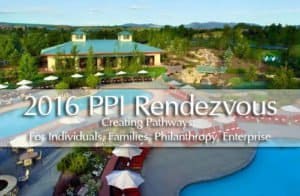I am not sure what it is about my brain, but it will often catch a word in one context, completely forget about it for weeks, and then light up like a fireworks show later when that word surfaces again in a different context.
The word will then dominate my thinking for a while, until I write a blog about it. Thanks for coming along for the ride as we deal with this week’s word, “coordination”.
Advisors: Cooperate or Collaborate?
As an advisor to business families, I am forever alert to the goings on in this space, and there’s lots of talk about how professionals who serve families should work less in their individual silos, and much more collaboratively.
I believe in this, of course, yet I am also realistic in my understanding that this is a tall order for many professionals who simply don’t know how to actually do this well, and for whom the short-term negatives will often seem to outweigh the associated positives.
Some like-minded professionals have put lots of work into trying to define the benefits of working collaboratively, as illustrated by this great NAEPC white paper.
I first learned of this document in July, at a breakout session during the annual Rendez-Vous of the Purposeful Planning Institute, where collaboration was shown to go much further than simple cooperation.
Cooperation should be a given between your advisors, but full collaboration may be a step too far for many. There was also some talk about coordination, as an intermediate place.
The word coordination stuck with me, since acting as a “coordinator” is something I already do while working with the members of the family.
Bowen Family Systems Theory
This week, I was in Washington, taking part in the Postgraduate Training Program at the Bowen Center at Georgetown University. Our early morning presenter on each of the three days was Dr. Dan Papero, and as usual he did not disappoint.
He presented some of his views on “Differentiation (of Self) from the ground up”, and along the way, there it was again, the magic word, “coordination”.
The specific context of which he spoke it is now a blur to me, but the jist of the idea was that in a family system, coordination was something to be aspired to. So there it was again!
My head began to spin with the concept of coordinating not just the advisors who work with families, but the members of the family themselves.
Clarity, Clarity, Clarity
The word “clarity” has also been front and center in my brain lately, and it struck me that coordination and clarity have somewhat of a symbiotic relationship.
Wait, what?
One of the biggest hurdles that a family must overcome to get their generational wealth transition “done right” is getting everyone on the same page, i.e. having a shared clear picture of what is at stake and what needs to be done.
When I am asked how I can help such families, providing better clarity is usually my top answer.
Once the picture of what needs to be done is clear, the work of organizing the family’s structures and governance then begins in earnest, but this work does not just magically happen.
You guessed it, that work must be coordinated.
The family’s work must be clear and coordinated, but much like the chicken and the egg, we can never be sure which one comes first.
Back to the Three Circle Model
It is is complex because it combines the three areas of the family, the business, and the ownership (see The Three Circle Model) and these three also share in the “which comes first?” dilemma.
Clarity before Coordination or Vice Versa?
Families who undertake the work required to achieve some family alignment will be better coordinated and therefore be much more clear on the work to be done.
And families who are clear on what needs to be done will find it easier to coordinate this work.
Some families are naturally better at this than others, but most could benefit from outside help.
The families that I had in mind when I titled this piece shall of course remain nameless. Hopefully they do not rhyme with your family name.
Most families are not nearly as coordinated as they could be or should be. Clarity, from an outside perspective, can be an enormous help.





